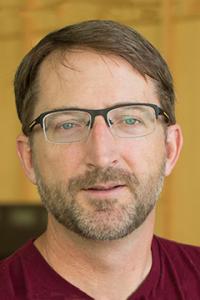When you are using crazy science and breakthrough technologies to try to solve some of the world's hardest problems, what does that feel like? How does diversity help? How do you encourage people to work on super risky ideas, even if they have a high chance of failing? And how do you balance optimism with workable solutions?
Carly Gloge will share her experiences at X, Google's "moonshot factory" responsible for among other things Google's self driving cars, stratospheric internet balloons, flying windmills, autonomous delivery drones, and more that she can't talk about quite yet. She will contrast her current work at X with her former life as a successful high-tech entrepreneur. She will share how X has created a culture of "psychological safety" that encourages failure because it's the fastest way of learning. And she will share some lessons learned at X about how we can all, whether we're individuals or large institutions, employ moonshot thinking to innovate and solve seemingly intractable problems.
Carly found her way into robotics through an unusual path… She went from running a design agency to founding a venture-backed startup to now serving as a Robotics Product Manager at X (formerly Google[x]) in Silicon Valley. Previously, she was the co-founder and CEO of Ubooly and Smart Toy which were acquired by Sphero in 2016. Her work as an entrepreneur led to her to being honored as a Forbes "30 under 30" entrepreneur and "10 Women to Watch in Tech in 2014" by Inc Magazine.
She serves as a mentor for multiple accelerators including the TechStars, NBCUniversal, LA Dodgers, and Qualcomm Robotics programs. While her background is in design, she discovered a passion for data science as an entrepreneur and is currently pursuing her Master's Degree from Harvard to hone those skills. In her free time, she helps out on the farm she lives on, hikes with her two dogs, and occasionally surfs (or at least attempts to stay on a surfboard).
As a young researcher I was told that most academics have one good idea they exploit throughout their careers. In reflecting on my own career these many years later I have to admit this just might be the case for me. But how could this be since my area of research is work practice and technology and today’s technologies are radically different from the PCs that were first being introduced into the workplace in the 1980s. In this talk I will consider how my one good idea has fared as technologies have changed and ask if today’s AI technologies are a radical break from past technologies requiring a fundamental rethinking about the relation between work and technology.
Jeanette Blomberg is Distinguished Researcher and Anthropologist at the IBM Almaden Research Center in San Jose, California and adjunct professor at Roskilde University in Denmark. Jeanette is known for her research on ethnography in design processes as outlined in two recent publications Positioning Ethnography within Participatory Design and Reflections on 25 Years of Ethnography in CSCW. In her recent book, An Anthropology of Services, she investigates how services are being conceptualised today and the possible benefits of taking an anthropological perspective on services and their design. Currently her research is focused on organisational analytics where she considers the linkages between human action, digital data production, data analytics, and business or societal outcomes. Prior to assuming her current position, Jeanette was a member of the Work Practice and Technology group at the Xerox Palo Alto Research Center (PARC), Director of Experience Modeling research at Sapient Corporation, and Industry-affiliated Professor at the Blekinge Institute of Technology in Sweden where in 2011 she was awarded an honorary doctorate. Jeanette received her Ph.D. in anthropology from the University of California, Davis where she also was a visiting professor and lecturer in cultural anthropology and sociolinguistics.
In recent years, HCI has entered the increasingly urgent debate around the role of computing and wider technical systems in the sustainability (or not) of lives and livelihoods as we enter an era firmly defined by human impacts on the planet. Much of this work has fallen within the traditional HCI heartland of design, oriented to producing less consumptive and more sustainable practices, often through mechanisms to support or incentivise behavior change at the level of individual users. This talk will argue that it is time to widen our circle of ethical and practical concern to include moments and choices that come both before and after design, several of which bear on the sustainability of computing itself and the human lives built into, around, and occasionally against it. Drawing on cases ranging from rare earth mineral extraction in the Congo to repair activism in the global North to practices of e-waste collection and recycling in South Asia, it will make the case for three central experiences of precarity, repair, and hope that must be accounted for as HCI learns to confront the anthropocene.
Steven Jackson is an Associate Professor of Information Science and Science and Technology Studies at Cornell University, and Dean of William Keeton House. His work centers on questions of ethics, value and power in contemporary computing cultures, with special emphasis on problems of infrastructure, maintenance, sustainability and repair. Current empirical projects include work on computational development and affective change in the sciences; vernacular creativity and improvisation in science, music and new media arts; computation and social change in post-colonial environments; and a book project on technological precarity, repair and hope. His work has been supported by the Ford and Sloan Foundations, World Bank, Intel Research, and the U.S. National Science Foundation. More info can be found at his web site.





